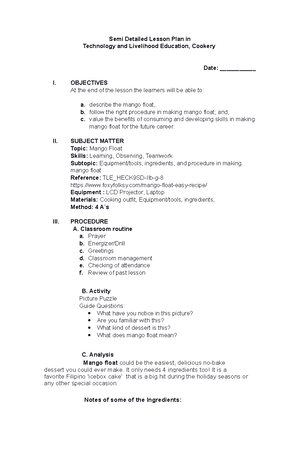- Information
- AI Chat
Was this document helpful?
CODE OF Ethics FOR Professional Teachers
Course: arts and home industries (tle 234)
218 Documents
Students shared 218 documents in this course
University: Cebu Technological University
Was this document helpful?

http://letqa.blogspot.com/
http://letqa.blogspot.com/
CODE OF ETHICS FOR PROFESSIONAL TEACHERS
Pursuant to the provisions of paragraph (e), Article 11, of R.A. No. 7836, otherwise known as the
Philippine Teachers Professionalization Act of 1994 and paragraph (a), section 6, P.D. No. 223, as
amended, the Board for Professional Teachers hereby adopt the Code of Ethics for Professional Teachers.
Preamble
Teachers are duly licensed professionals who possesses dignity and reputation with high moral values as
well as technical and professional competence in the practice of their noble profession, and they strictly
adhere to, observe, and practice this set of ethical and moral principles, standards, and values.
Article I: Scope and Limitations
Section 1. The Philippine Constitution provides that all educational institution shall offer quality education
for all competent teachers. Committed to its full realization, the provision of this Code shall apply,
therefore, to all teachers in schools in the Philippines.
Section 2. This Code covers all public and private school teachers in all educational institutions at the
preschool, primary, elementary, and secondary levels whether academic, vocational, special, technical, or
non-formal. The term “teacher― shall include industrial arts or vocational teachers and all other
persons performing supervisory and /or administrative functions in all school at the aforesaid levels,
whether on full time or part-time basis.
Article II: The Teacher and the State
Section 1. The schools are the nurseries of the future citizens of the state; each teacher is a trustee of the
cultural and educational heritage of the nation and is under obligation to transmit to learners such heritage
as well as to elevate national morality, promote national pride, cultivate love of country, instill allegiance
to the constitution and for all duly constituted authorities, and promote obedience to the laws of the state.
Section 2. Every teacher or school official shall actively help carry out the declared policies of the state,
and shall take an oath to this effect.
Section 3. In the interest of the State and of the Filipino people as much as of his own, every teacher shall
be physically, mentally and morally fit.
Section 4. Every teacher shall possess and actualize a full commitment and devotion to duty.
Section 5. A teacher shall not engage in the promotion of any political, religious, or other partisan interest,
and shall not, directly or indirectly, solicit, require, collect, or receive any money or service or other
valuable material from any person or entity for such purposes.
Section 6. Every teacher shall vote and shall exercise all other constitutional rights and responsibility.
Section 7. A teacher shall not use his position or official authority or influence to coerce any other person
to follow any political course of action.
Section 8. Every teacher shall enjoy academic freedom and shall have privilege of expounding the product
of his researches and investigations; provided that, if the results are inimical to the declared policies of the
State, they shall be brought to the proper authorities for appropriate remedial action.
Article III: The Teacher and the Community
Section 1. A teacher is a facilitator of learning and of the development of the youth; he shall, therefore,
render the best service by providing an environment conducive to such learning and growth.
Section 2. Every teacher shall provide leadership and initiative to actively participate in community
movements for moral, social, educational, economic and civic betterment.
Section 3. Every teacher shall merit reasonable social recognition for which purpose he shall behave with
honor and dignity at all times and refrain from such activities as gambling, smoking, drunkenness, and
other excesses, much less illicit relations.
Section 4. Every teacher shall live for and with the community and shall, therefore, study and understand
local customs and traditions in order to have sympathetic attitude, therefore, refrain from disparaging the
community.









